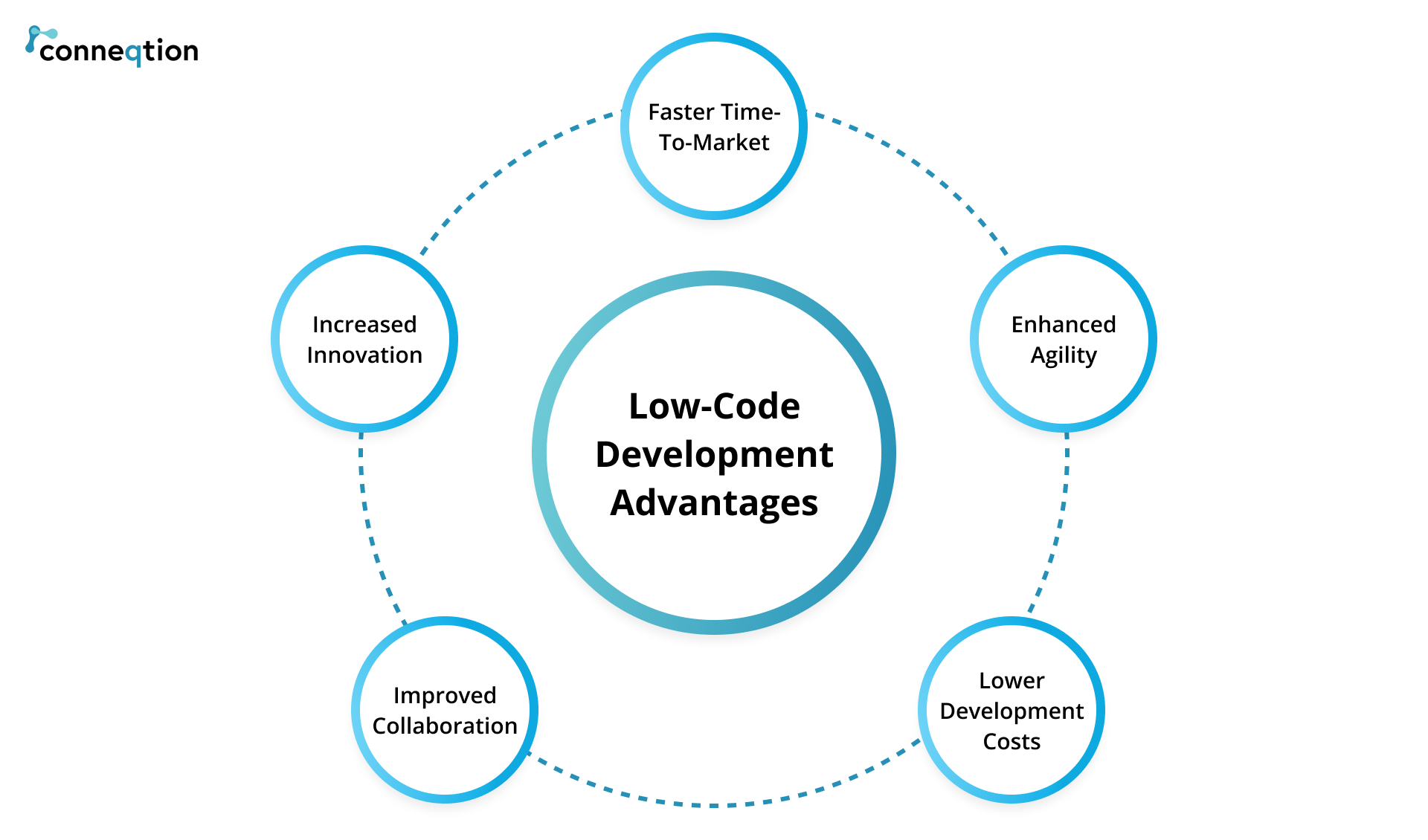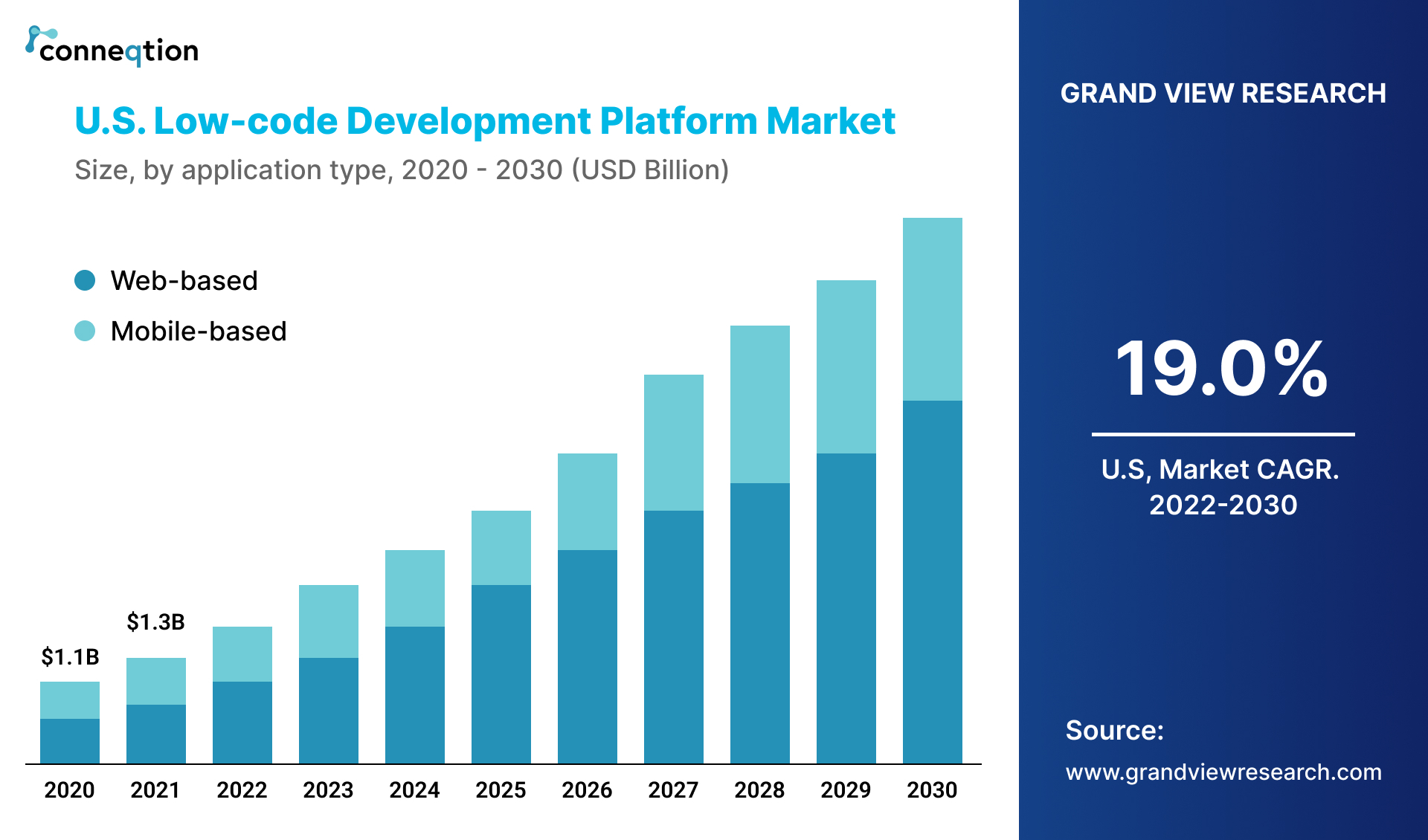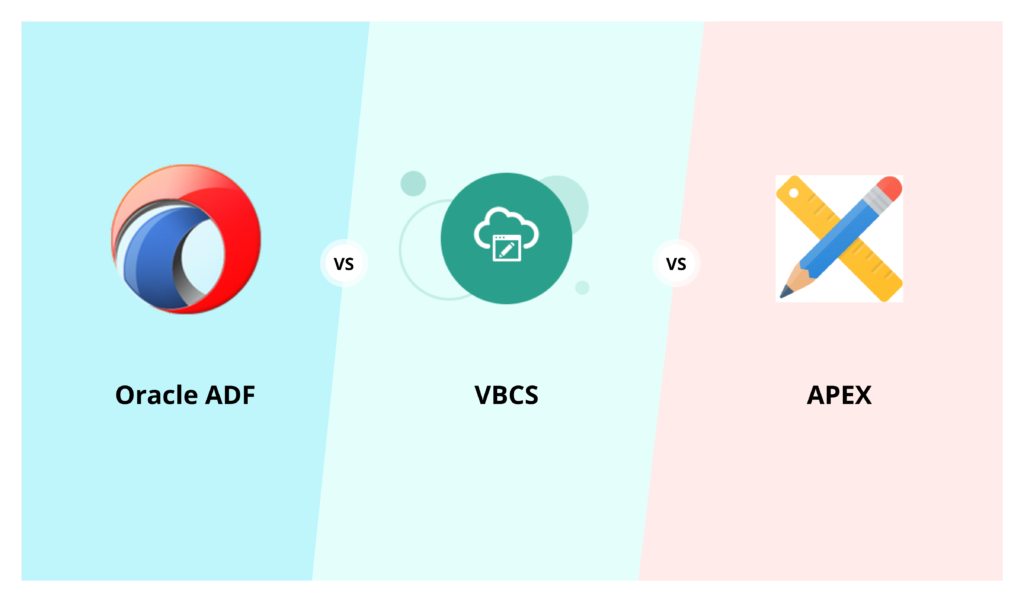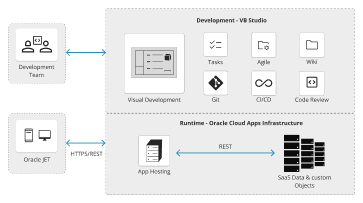According to Gartner research, over 50% of enterprises will use low code development platforms as their primary application platform. In recent years low-code development is becoming increasingly popular due to its ability to empower both professional developers and non-developers to build applications with reduced coding effort. We’ll discuss the benefits and how you can leverage the low code development.

What is low code app development?
Low code application development is an approach to software development that allows users to create applications using a visual, drag-and-drop interface rather than traditional coding. With low code, users can create functional software applications with minimal or no programming experience. This development process often involves pre-built templates, drag-and-drop components, and a library of pre-built connectors to integrate with other systems.
How does low code development help in businesses?
It offers several benefits to businesses, including:
Faster time-to-market:
It enables developers to create applications much faster than traditional coding methods, as it eliminates the need for manual coding and automates many of the development tasks.
Increased agility:
Low-code development platforms allow for rapid iteration and customization of applications, enabling businesses to quickly respond to changing requirements and market conditions.
Lower development costs:
By eliminating the need for manual coding, low-code development can significantly reduce the cost of application development, as well as the ongoing maintenance and support costs.
Improved collaboration:
Low-code software development platforms often provide built-in collaboration tools that enable team members to work together more effectively, share knowledge and expertise, and ensure consistency across the development process.
Increased innovation:
This allows developers to focus on solving business problems and delivering value to customers rather than spending time on debugging errors and manual coding, which can lead to increased innovation and creativity.
Suggested for you: How to Invoke PCS workflow using VBCS?
Do you really need IT support to develop an application in oracle VBCS?
Yes. but it depends on the complexity of the application you are trying to develop and your level of expertise with Oracle VBCS.
If you have a good understanding of Oracle VBCS and are developing a relatively simple application, then you may not need IT support. However, if you are developing a more complex application, then IT support may be necessary.
IT support can help with issues such as:
Setting up the development environment: IT support can help set up the development environment for Oracle VBCS, which can include installing the necessary software, configuring servers, and setting up the database.
- If you encounter technical issues while developing your application, IT support can help troubleshoot the issue and provide solutions.
- They can help you ensure that your application is secure and compliant with industry standards and regulations.
- If you need to integrate your application with other systems or databases, IT support can help ensure that the integration is seamless and that the application functions correctly.
There are some other low code application development platforms available in the market, but you can consider the Oracle VBCS which is one of the industry leading platforms suitable for large and medium scale enterprises.
Difference between Low Code and No Code Development
Before you need to build an application understand the difference between low code and no code development.
Low Code | No Code |
| Low code platforms provide a set of tools and pre-built components that developers can use to create applications with minimal coding required. | No code platforms provide a set of tools and pre-built components that non-technical users can use to create applications with no coding required. |
| Low code platforms require some level of coding knowledge, such as understanding basic programming concepts and syntax. | This do not require any coding knowledge or experience. |
| Low code platforms are typically used by professional developers who need to create applications quickly and efficiently, without spending a lot of time on coding. | This typically used by business analysts, project managers, or other non-technical users who need to create applications for specific business purposes, such as data visualization or workflow automation. |
| Low code platforms often provide more flexibility and customization options than no code platforms, but also require more technical knowledge to use. | No code platforms are generally more limited in their customization options but are easier to use and require less technical knowledge. |
| Low code platforms can be used to build complex applications that require custom logic and advanced features. | No code platforms are best suited for simple applications or workflows that do not require complex logic or advanced features. |
| Examples of low code platforms include oracle VBCS, Microsoft PowerApps, OutSystems, Mendix. | Example of No code development Bubble, Airtable, and Zapier. |
The future of low code application development
Low code development future looks bright, as more organizations embrace this technology to accelerate their software development processes and create custom applications. As low code development platforms continue to evolve and incorporate new features, they will become even more accessible to people without programming expertise, enabling more people to create software applications. As you can see in the below graph shows the web and mobile application development increased year on year.

Conclusion
As the future of low-code development helps in building a software application and the job demand is also going to peak in the upcoming years, if you are building a low-code application, make sure you have a proper IT team to test the application you have developed. If you need IT support? We at Conneqtion Group have a team of experts in VBCS web development where you can get your application tested. Contact us today to know more about our service.




